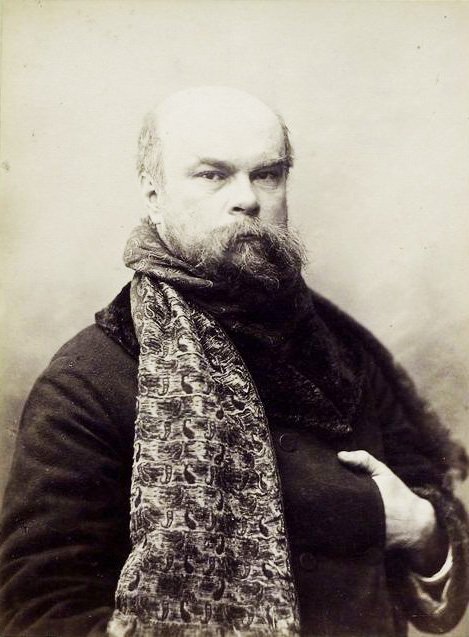Friday
I find myself recalling the poetry of French poet Paul Verlaine these days, perhaps because Sewanee recently has been beset by dark and dismal weather. On Tuesday I shared “Tears Fall in My Heart” while today I turn to “Autumn Song.”
When I was attending school in France in 1964-65, Verlaine led the list of poets we were required to memorize. My favorite part of the school days were the two sessions devoted to poetry, with half an hour closing out the morning session and half an hour the afternoon. (School went from 9-12 and 2-5, with no school on Thursday and half day on Saturday.) Along with Verlaine, we learned poems by Apollinaire, La Fontaine, Victor Hugo, and others I can’t remember. Verlaine is the one who stays with me the most.
Given that his verse is so mesmerizing, I sense that Verlaine has a place in the French cultural imagination similar to that enjoyed by Wordsworth in the British, Burns in the Scottish, and Robert Frost in the American. His poems are often aural gems, which one hears in the opening lines of Autumn Song.” Long, drawn-out assonance captures the sobbing violins of autumn:
Les sanglots longs
Des violons
De l’autumne…
The Poetry Foundation essay on Verlaine observes that he was often overcome by despair, brought on by “overwhelming and contradictory feelings of fear and hope,” and that “only in poetry could he find temporary peace.” And indeed, there is something soothing in reciting one of Verlaine’s melancholy poems. I can’t begin to do justice to the sounds in my translation—I’m skilled neither as a poet nor as a translator and furthermore my French is rusty—but here goes anyway:
Autumn Song
The long sobs
Of the violins
Of autumn
Wound my heart
With monotonous
Languor.
All choking
And pale
When the final hour sounds
I think back
To the days of yore
And I weep;
And I set off
Carried away
By an ill wind
First here
Then there
Buffeted
Like a dead leaf.
Seldom has depression been conveyed so sonorously. Verlaine almost gives it a good name.
Original
Interestingly, the opening lines from the poem were used by the allied forces to signal to the French Resistance that D-Day was about to begin. Here’s the poem in French:
Chanson d’automne
Les sanglots longs
Des violons
De l’automne
Blessent mon coeur
D’une langueur
Monotone.Tout suffocant
Et blême, quand
Sonne l’heure,
Je me souviens
Des jours anciens
Et je pleure;Et je m’en vais
Au vent mauvais
Qui m’emporte
Deçà, delà,
Pareil à la
Feuille morte.


